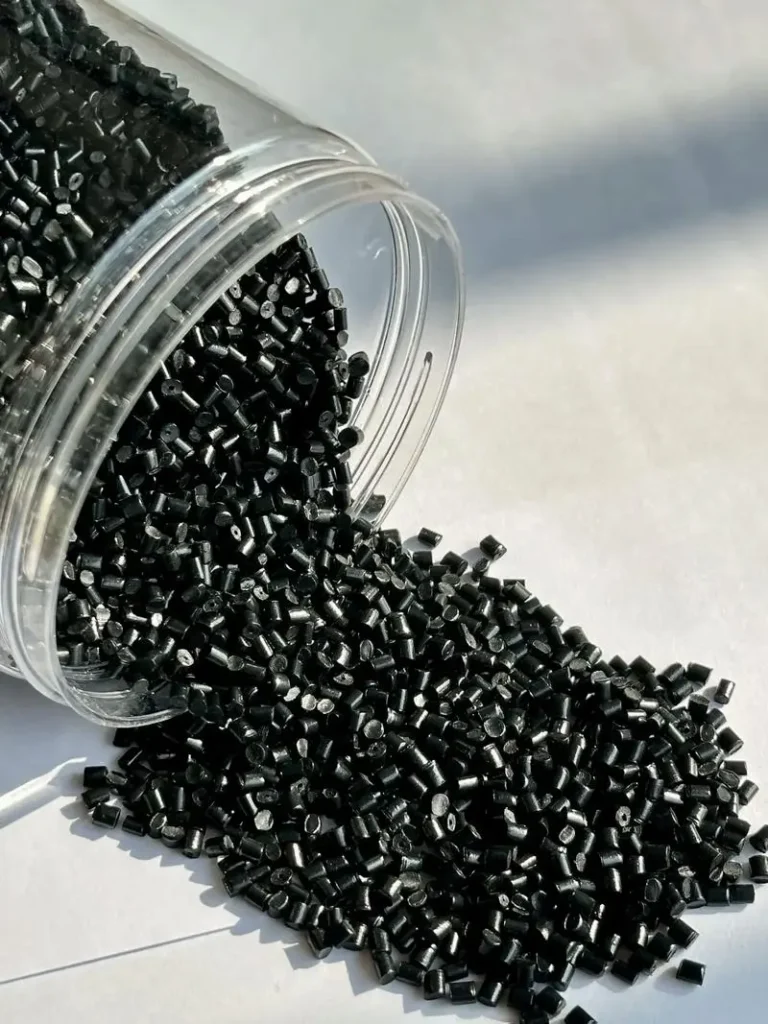Introductie van PA6
PA6, of Nylon 6, is een veelgebruikte technische kunststof die bekend staat om zijn sterkte, duurzaamheid en veelzijdigheid. Zijn gevoeligheid voor waterabsorptie kan echter uitdagingen vormen in toepassingen waar maatvastheid en prestaties in vochtige omgevingen cruciaal zijn. De modificatietechnieken van PA6 zijn ontwikkeld om dit probleem aan te pakken, waardoor de waterabsorptie effectief wordt verminderd en de algehele prestaties worden verbeterd.
Methoden om waterabsorptie in PA6 te verminderen
Er worden drie primaire benaderingen gebruikt om waterabsorptie in PA6 te verminderen:
- Co-Modificatiemiddelen:Door co-modificatiemiddelen toe te voegen, zoals lldp, PP of maleïnezuuranhydridepolymerisatie, verandert de chemische structuur van PA6, waardoor het aantal polaire groepen dat watermoleculen aantrekt, afneemt.
- Organische vulstoffen:Door organische vulstoffen, zoals calciumcarbonaat of licht calciumcarbonaat, in de PA6-matrix op te nemen, wordt de beweging van watermoleculen fysiek beperkt, waardoor hun diffusie in het materiaal wordt belemmerd.
- Oppervlaktebehandeling en -modificatie:Het wijzigen van het oppervlak van PA6, door chemische of fysische behandelingen, creëert een barrière die het binnendringen van water verhindert en de totale waterabsorptie vermindert.
De kernprincipes begrijpen
De effectiviteit van PA6 wijziging in het verminderen van waterabsorptie komt voort uit drie belangrijke principes:
- Polariteit Afschermend Effect:Door apolaire of minder polaire groepen in de PA6-structuur te introduceren, vermindert het afschermingseffect de aantrekkingskracht tussen PA6 en watermoleculen, waardoor de wateropname wordt geminimaliseerd.
- Kristallisatie Afschermend Effect:Het verhogen van de kristalliniteit van PA6 door modificatietechnieken vermindert de amorfe gebieden waar watermoleculen de neiging hebben zich op te hopen, wat leidt tot een lagere waterabsorptie.
- Structureel afschermingseffect:Door vulstoffen of oppervlaktemodificatoren toe te voegen, wordt een fysieke barrière gecreëerd die direct contact tussen PA6 en water voorkomt, waardoor de waterabsorptie nog verder afneemt.
Conclusie
PA6-modificatie biedt een veelzijdige aanpak om de waterbestendigheid te verbeteren en het toepassingsgebied uit te breiden. Door de onderliggende principes van deze modificatietechnieken te begrijpen, kunnen we PA6 effectief op maat maken voor specifieke toepassingen die uitzonderlijke prestaties in vochtige omgevingen vereisen.

